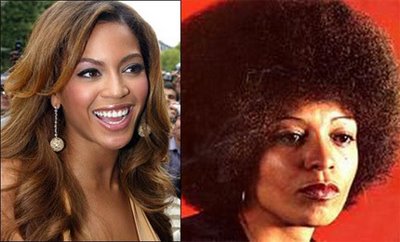“An Autobiography” (1974) by Angela Davis tells the story of the first 28 years of her life, from birth to her arrest, imprisonment and trial. It was edited by Toni Morrison, who had already written “The Bluest Eye” and was then working for Random House.
I got it from the library because it was out of print – but now it seems to be back in print again!
It is not as good as, say, the autobiography of Malcolm X, but it is still well worth reading.
Malcolm X was not only more important in history, his story is one of self-discovery, a search for the truth that remakes him. Like St Augustine’s “Confessions”.
Angela Davis’s life was far more straightforward: she saw how unjust American society was growing up and sought to change it by taking part in SNCC, the Black Panthers and the Communist Party. In time this landed her in prison.
The part about the trial was well written: it could have bored you to tears with all the ins and outs that trials have, but she avoided that. Best of all was the ending: even though you already knew she would win, you were still overjoyed when she does win! That is how the book ends.
The book starts two years before with her on the run from the FBI. She is arrested in New York and put in prison. Since she is to stand trial in California, she is sent back. At that point the book jumps back to fill in the first 26 years of her life and then ends with her imprisonment in California and the trial.
She writes at great length about her time in prison. It affected her powerfully, but not me: I expect prison to be terrible, so nothing she said shocked me.
The same goes for what she said about the police in Los Angeles: from living in New York I already knew how they can be. But it is nice to know that I am not just imagining it.
One of the best parts is her account of growing up in the Jim Crow South in the 1950s. It makes you see how some things have changed like night and day (like being able to walk in through the front door) while other things remain the same (like the police).
She won me over when she said she loves reading books but hates going to parties.
Another good part was her account of the Los Angeles police trying to wipe out the Black Panthers.
She lives in Los Angeles in the 1960s. There are no Jim Crow laws there, yet in some ways the racism is worse: because the whites there know and understand blacks less they seem to regard them more like wild animals to be threatened, shot and put safely behind bars.
She says little about philosophy, which she studied for years, and little about racism in New York, where she lived during part of high school.
It is called “an” autobiography. Is she going to write another one?
See also:
- Angela Davis
- These postsare based on the book:
- Malcolm X
- Augustine
- The police
- Jim Crow







